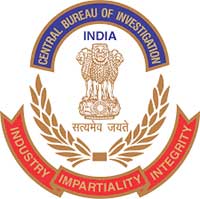Latest Crime Manual of CBI to finish probes within 9 months
It is said that the Justice delayed is justice denied. That is why expeditious disposal of cases by investigation agency is needed to ensure the people's faith in investigation agencies across India . Taking into consideration this sense of justice delivery , The Central Bureau of Investigation (CBI) has decided to complete majority of its investigations under the Prevention of Corruption (PC) Act within a maximum nine months.
CBI has set this target in it's latest Crime Manual which was updated after 15 years.
This manual is prepared by a task force led by additional director Praveen Sinha after consulting legal experts, retired officers of the agency and other experts — has for the first time given a provision to form “investigation teams” in complex cases rather than depending on one Investigating Officer (IO).
For cases against lower-range government officers, like clerks or section officers etc, CBI’s investigating officers (IOs) will have to complete probes within six months. While The existing one-year deadline in corruption cases will apply only in those cases wherein a high ranking government official such as a joint secretary or secretary is accused, and the probe is being supervised by an officer of additional director rank or above in the CBI.
The manual also gives special thrust on investigations abroad. Officials cited above said a special chapter has been dedicated in the manual explaining how to conduct investigations abroad as well as procedures and the functioning of Interpol.
About CBI :
The Central Bureau of Investigation (CBI ) , functioning under Deptt. of Personnel, Ministry of Personnel, Pension & Public Grievances, Government of India, is the premier investigating police agency in India.
The CBI has to investigate major crimes in the country having interstate and international ramifications. It is also involved in collection of criminal intelligence pertaining to three of its main areas of operation, viz., Anti-Corruption, Economic Crimes and Special Crimes.
The Anti-Corruption Division of the CBI has handled cases against Chief Ministers, Ministers, Secretaries to Government, Officers of the All India Services, CMDs of Banks, Financial Institutions, Public Sector Undertakings, etc.
CBI investigations have a major impact on the political and economic life of the nation. The following broad categories of criminal cases are handled by the CBI:
- Cases of corruption and fraud committed by public servants of all Central Govt. Departments, Central Public Sector Undertakings and Central Financial Institutions.
- Economic crimes, including bank frauds, financial frauds,
- Import Export & Foreign Exchange violations,
- large-scale smuggling of narcotics, antiques, cultural property and smuggling of other contraband items etc.
- Special Crimes, such as cases of terrorism, bomb blasts, sensational homicides, kidnapping for ransom and crimes committed by the mafia/the underworld.
Structure of CBI :
The CBI is headed by a Director. the other police ranks in CBI are Special Director/Addl. Director, Joint Director, Dy. Inspr. General of Police, Inspector, Sub-Inspector, Assistant Sub-Inspector, Head Constable and Constable.
As per the CVC Act notified on 12.09.2003, the supritendence over CBI so far as it relates to investigation of the offences alleged to have been committed under the Prevention of Corruption Act 1988, shall vest in Central Vigilance Commission.
Powers, privileges and liabilities of CBI:
The legal powers of investigation of CBI are derived from the DSPE Act 1946. This Act confers concurrent and coextensive powers, duties, privileges and liabilities on the members of Delhi Special Police Establishment (CBI) with Police Officers of the Union Territories. The Central Government may extend to any area, besides Union Territories, the powers and jurisdiction of members of the CBI for investigation subject to the consent of the Government of the concerned State Govt.
While exercising such powers, members of the CBI of or above the rank of Sub Inspector shall be deemed to be officers incharge of Police Stations of respective jurisdictions. The CBI can investigate only such of the offences as are notified by the Central Government under the DSPE Act.
Jurisdiction of CBI vis-a-vis State Police
Law and Order is a State subject and the basic jurisdiction to investigate crime lies with State Police. Besides, due to limited resources, CBI would not be able to investigate crimes of all kind.
CBI may investigate:
- Cases which are essentially against Central Govt. employees or concerning affairs of the Central Govt.
- Cases in which the financial interests of the Central Government are involved.
- Cases relating to the breaches of Central Laws with the enforcement of which the Government of India is mainly concerned.
- Big cases of fraud, cheating, embezzlement and the like relating to companies in which large funds are involved and similar other cases when committed by organised gangs or professional criminals having ramifications in several States.
- Cases having interstate and international ramifications and involving several official agencies where, from all angles, it is considered necessary that a single investigating agency should be incharge of the investigation.








